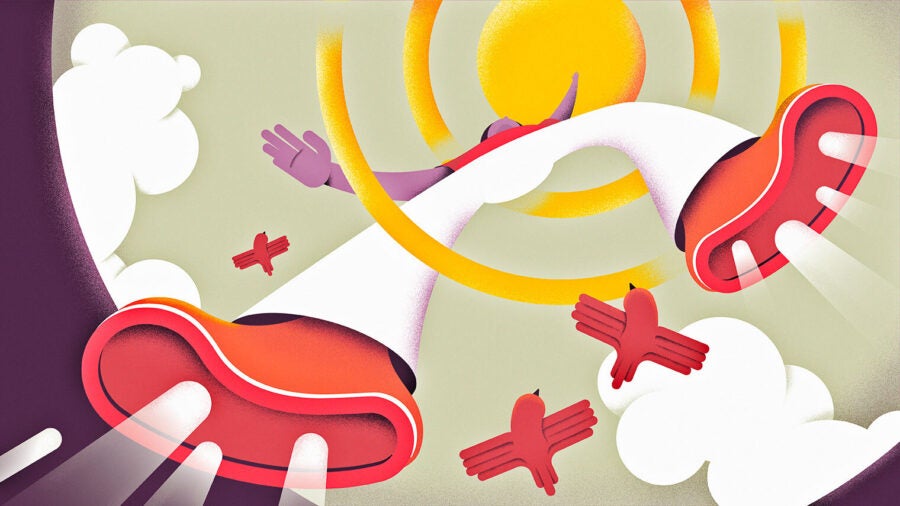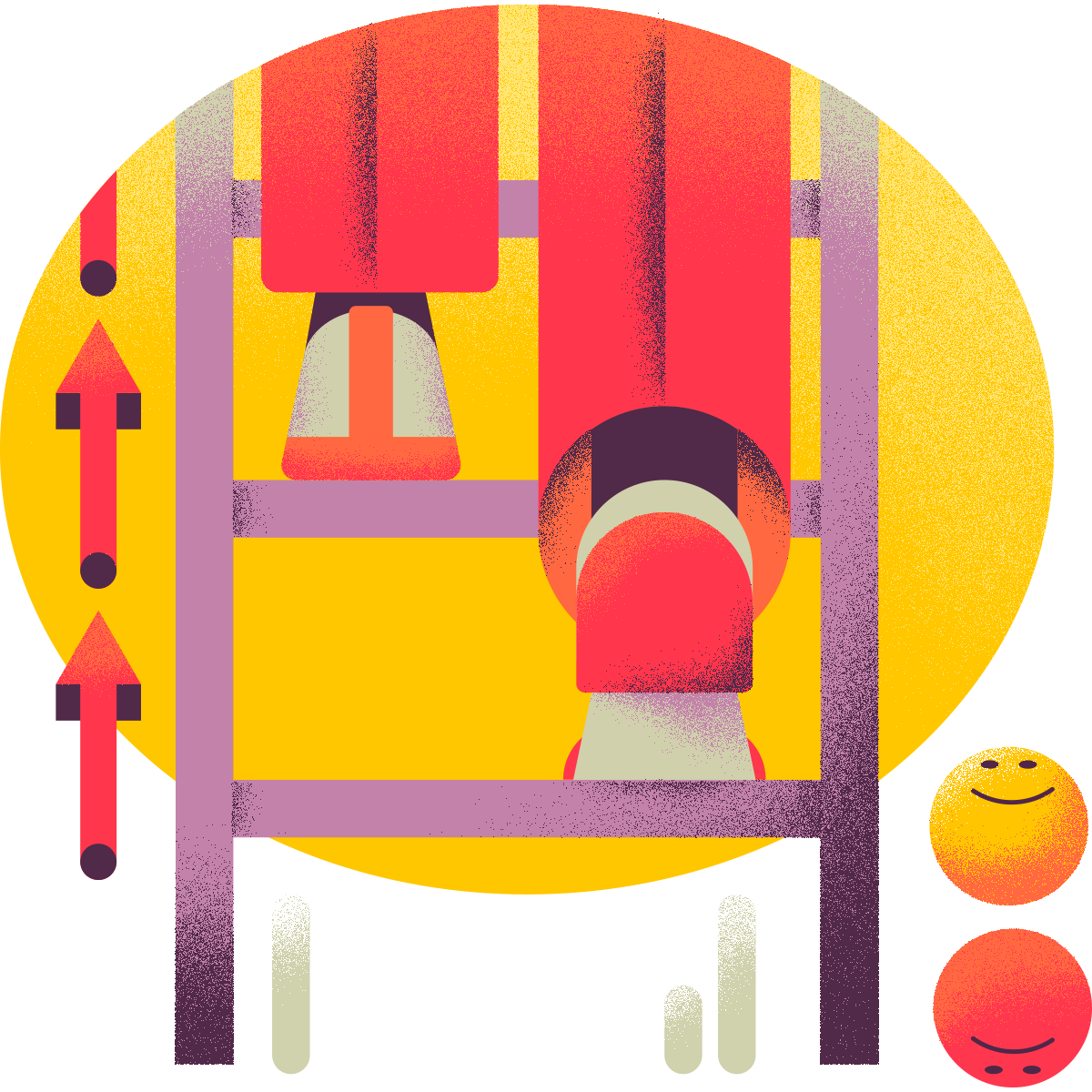
Failure in business should not be understood as absolute. In fact, many great ideas are born of the lessons that people take from their lowest moments.
Suffering a major setback – whether it’s a botched product launch, a counterproductive marketing campaign or even the breakdown of a valued personal relationship – can often help the person affected to identify their blind spots and address these effectively.
The experience can enable people to gain fresh perspective and even improve their mental strength, so that they might cope better when the next testing situation arises.
Does failure really exist?
Failure is an inescapable aspect of everyone’s lives, says Denis Liam Murphy, co-founding partner of RoundTable Global, a consultancy specialising in leadership development. It should therefore be embraced rather than feared.
Business leaders should strive for ‘real-time hindsight’
Murphy is the author of The Blame Game: how to recover from the world’s oldest addiction, a book on coping with professional and personal misfortune. He believes it’s important for business leaders to review their work constantly and reframe any project that doesn’t go to plan.
“We think in terms of failing because we’re so used to the idea of starting things and finishing them, rather than understanding that we’re on a constant journey,” Murphy explains. “There are twists and turns in business, which come with natural self-reflection points.”
What if, he suggests, there were no such thing as failure? What if it were merely a perception based on limited information? While a disastrous product launch might be a serious setback in the short term, the next one will probably go much better as a result.
For this reason, he prefers to call such events “speed bumps, rather than setbacks. I think of them more as situations where you must slow down and take in more information. You have to seek different perspectives and be honest about any motivations and endgames you weren’t aware of.”
Murphy adds that business leaders should strive for “real-time hindsight”. This means immediately reflecting on the lessons of a project’s outcome. He adds that the most successful people think in terms of what could have gone better, rather than what went badly.
Strong mental health is vital for success in business
Two years ago, suffering the effects of unfavourable contracts and overwork, PR entrepreneur Hayley Knight was forced to close her business, Boxed Out PR.
Knight recalls that her struggle to set effective boundaries between her professional and personal lives had led to some impulsive decision-making. She was “running on empty. I was failing myself and my clients. I wasn’t delivering the results I’d promised, as I was stretching myself too thin.”
Working unsociable hours with no staff to support her, she found that the time consumed by client calls each week was exceeding the total she was spending with her husband, Marcus. “I couldn’t grow the business on my own. I wasn’t charging my clients enough, but I had neither the time to negotiate new terms nor anyone to delegate to,” she recalls.
Eventually, she concluded that a complete break was required, as the situation wasn’t sustainable. “After a long process, which included seeking therapy to overcome the anxiety associated with stepping away from my career, I closed the business,” she says. “My husband quit his job and we both left to travel the world.”
The sabbatical was a “transformative” experience for Knight. The extended period away has helped her to reset her relationship with work. Having suffered burnout, she is determined to never experience it again.
In July, the couple established a new PR agency, Be Yellow, which recently hired its first full-time member of staff. “I am implementing better boundaries; saying ‘no’ to what doesn’t fit; making better decisions; and using techniques such as journaling and meditation to gain clarity,” she says. “I’ve learnt to deal with stressful situations in a better, more productive way. I want to work to live, not live to work.”
Losing a job is not the end of the world
In 2014, Dan Crowder was dismissed from his job at a recruitment agency – an experience he describes as “genuinely the best thing that ever happened to me”.
I couldn’t grow the business on my own
After overcoming the initial feeling of shame – Crowder admits that he’d been underperforming – he realised that he didn‘t need to let this incident define his career. He went on to found Craft, a design recruitment agency with offices in London and New York, which has worked with brands including Channel 4 and Deloitte.
Crowder reflected on the things that he didn’t respond to well in his old job. For one thing, he felt that the role had been “very siloed” – and resolved that Craft would work in a completely different way. “We’ve instilled a deep-rooted culture of collaboration and partnership, with each other and our clients,” he says.
Rather than dwelling on the disappointment of losing his job, Crowder used that failure as a catalyst for positive action. “It was the kick I needed. It helped to reshape my perspective on what I really wanted, fuelling me to start Craft,” he says. “I’ve since met the person who fired me – and I couldn’t thank them enough.”
Learning to embrace the struggle
A business leader’s resilience to major setbacks is rooted in three key factors: psychology, self-care and a support network.
Psychology refers to the understanding that struggle, stress and failure are not dirty words. Rather, a leader should view them as opportunities to reflect and reframe before they respond with greater contextual insight.
Self-care means giving yourself the time and space to recover from a failure without feeling guilty about it. And it’s important to have a reliable network of supportive people (staff, friends, family) present to help you bounce back stronger.
Ultimately, “pain is great for learning”, quips Crowder, while Murphy notes that “many blessings come in disguise”. None of this means that struggle, stress and failure aren’t hard for anyone to cope with initially, of course, but what great enterprise has ever been built without those things?

Failure in business should not be understood as absolute. In fact, many great ideas are born of the lessons that people take from their lowest moments.
Suffering a major setback – whether it’s a botched product launch, a counterproductive marketing campaign or even the breakdown of a valued personal relationship – can often help the person affected to identify their blind spots and address these effectively.
The experience can enable people to gain fresh perspective and even improve their mental strength, so that they might cope better when the next testing situation arises.






